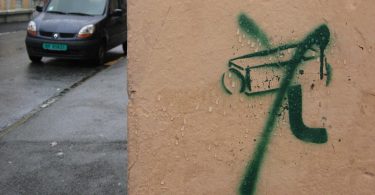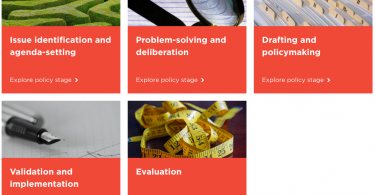December 5, 2014
Politically, Latin America has been the region with the strongest, most coordinated, and proactive response against surveillance in the world. From the first moment revelations of massive spying by the intelligence agencies of Australia, Canada New Zealand, the UK, and the US emerged, the governments of Latin America have condemned the massive violation of human rights. Regional Ministries of Foreign Affairs from MERCOSUR and their Presidents declared such surveillance to be a threat against sovereignty, democracy and peace, and brought their concerns to UN Secretary General Ban Ki Moon in a private hearing.
These words quickly turned to action. The speech of now re-elected Brazilian President Dilma Rousseff – one of the most visible events in the region – led to the creation of work agendas within different regional mechanisms, including MERCOSUR, CELAC, UNASUR, OAS and ALBA, to address surveillance concerns. Anti-surveillance is a priority on the agenda at each of these regional organisations, and each has a working group dedicated to the issue. The region’s efforts against surveillance have been consistent throughout the year and a half since the revelations first emerged, and to date, 14 Latin American countries have endorsed the UN Resolution on Privacy in the Digital Age.
At an event in Quito, Ecuadorian Foreign Minister Ricardo Patiño reiterated the regional commitment to an Internet which empowers citizens, embraces human rights, and which is free from massive surveillance. He also emphasised his support for the development of regionally owned Internet infrastructure, for taking steps toward the use of locally developed sovereign technologies, and for using the Internet as a tool for peace, while condemning cyberwar rhetoric and the “militarisation” of the Internet.
Achieving such an ambitious agenda will require action at all layers of society, and will not materialise without citizen participation. By working together with political leaders and putting the necessary political pressure on regional leaders to work for change, the Latin American region’s 400 million inhabitants – most of whom are young and increasingly connected – could have a huge impact on progress toward a model framework for the knowledge society.
The good news is that Latin America has a strong, savvy, well organised, and integrated civil society, as a recent mapping shows. Experts in the region recently came together and joined the very supportive OAS Special Rapporteur on Freedom of Expression, Uruguayan Edison Lanza, at a special hearing to discuss Internet and Human Rights. The outlook on the grassroots level is positive as well. The Web We Want campaign has worked on a range of research and advocacy projects with more than twenty different organisations in the region – from research centers to hackerspaces – and through each project, we have encountered a vibrant and engaged youth willing to work to defend their privacy. We are confident that civil society is ready to take the anti-surveillance reform challenges to the next level.
This is why, in partnership with Derechos Digitales and Oficina Antivigilancia, @antivigilancia we are organising a two-day regional workshop, where our small grants winners will join activists, lawyers specialised in strategic litigation, and journalists to design a multidimensional regional strategy to create the Web Latin America Wants – a Web that embraces privacy as a central principle and enforces it as a human right for all, enabling peace, democracy and development. We look forward to updating you on the outcomes of the meeting.




The Dino Game is a great example of how a simple concept can be incredibly engaging. https://dinogame2.blog.ss-blog.jp/2024-08-27
“Are you looking for a way to discreetly conceal that your PC is turned on? BlackScreen.Space offers a solution by utilizing a black screen. This is particularly useful when you have multiple monitors and prefer to keep them powered on, such as when running background tasks or downloads, without drawing attention to your computer’s activity. Maintain privacy and optimize your workflow with the elegance of a black screen.
https://blackscreen.space/“
Merely a smiling visitant here to share the love (:, btw outstanding style.